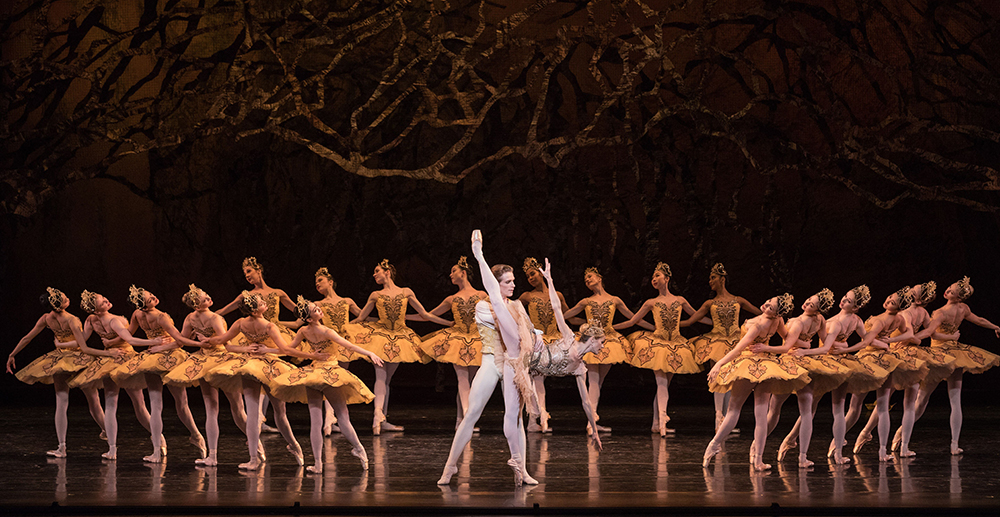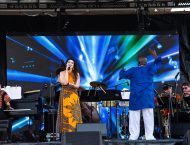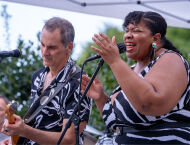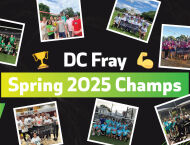Culture
 Photo: Teresa Wood
Photo: Teresa Wood
The National Ballet Of Canada Brings Timeless Sleeping Beauty To Kennedy Center
January 31, 2020 @ 12:00am
The National Ballet of Canada is on tour in the District for a whirlwind week of performances at the Kennedy Center, including the classic The Sleeping Beauty (January 28-February 2) and Works by Forsythe, Kylian, and Ratmansky (January 28 and January 29), the latter comprising a mixed bill of seven modern shorts.
The intent behind the eclectic pairing of productions was to showcase the strength and diversity of the company’s talent, offering multiple rolls for many young and up-and-coming dancers to take the stage alongside seasoned principals.
The Thursday, January 30 Opera House performance of The Sleeping Beauty in was indeed an ensemble piece – and perhaps fittingly so, as it was this staging, choreographed by Rudolf Nureyev after Marius Petipa, and revised by Artistic Director Karen Kain in 2006, that put the then-young Canadian company on the map in 1972.
Set to an equally famous score by Pyotr Ilyich Tchaikovsky, The Sleeping Beauty is an epitomic full-length work known both for exaggerated spectacle of costume and design, and its technical demand.
Principal dancer Jillian Vanstone, who performs the lead role Aurora for the January 31 and February 2 performances (and also danced the Petite Mort in the contemporary shorts), has been with the company since 1999.
“Sleeping Beauty is always a little intimidating – it’s classic, long and requires stamina. I really love it but at the beginning [of a run] it’s always a little mentally daunting,” she says.
But what does it mean to perform The Sleeping Beauty in 2020, in DC? Timelessness aside, is this “romantic” tale of a helpless princess cursed to 100 years of slumber by an evil witch, and whose only hope for survival is the kiss of a prince truly important or even appropriate to perform here and now?
“It is a challenge to update [a work like this] or make it relevant for this century, and I think there’s room here for that,” Vanstone says. “What I do think is a little interesting about our version is from what I understand, the director wanted more of a strong character as Aurora, not just this demure pretty thing. Someone regal and strong. She has, especially in the third act, this regal authoritative feel about her and so I try to bring that out.”
Thursday evening’s packed Opera House indicates that while perhaps not thematically on point for today, lovers of the ballet still flock to this work for a reason. The pageantry was transformative: Ornate costumes, dreamlike scenery, Tanya Howard’s floating Lilac Fairy and, of course, a live orchestra playing Tchaikovsky took the beltway audience to a land far and away – which may have been just the remedy to reality some sought.
One unfortunate aspect of the pageantry was that costumes often obstructed the dancing – though by no fault of the dancers themselves, who nevertheless seemed to navigate the heavy fabrics, feathers and props with as much grace as possible.
And despite the reimagining of Aurora’s character as more than a demure damsel, taken as a whole, the male dancers of the company outperformed their female counterparts during this performance, particularly in demonstrations of strength. Especially notable talents were Naoya Ebe as Bluebird and principal dancer Harrison James’s Prince Florimund.
James, who joined the company in 2013 as a member of the Corps de Ballet, was promoted to principal dancer in 2016 and won the Rolex Dancers First Award for his performance as Alexei Vronsky in Anna Karenina, Oberon in The Dream and the title role in Apollo.
In contrast to “hammering home the excitement and energy” of Forsythe, or a piece like the Petite Mort, which James describes as “so innately musical and human,” the young dancer says The Sleeping Beauty is, “a monolith – everything you want and expect to see from classical pure ballet, which of course makes it a little more challenging to take on.”
The National Ballet of Canada’s production of The Sleeping Beauty continues at The Kennedy Center through Sunday, February 2. Tickets are $29-$149.
The John F. Kennedy Performing Arts Center: 2700 F St. NW, DC; 202-467-4600; www.kennedy-center.org







